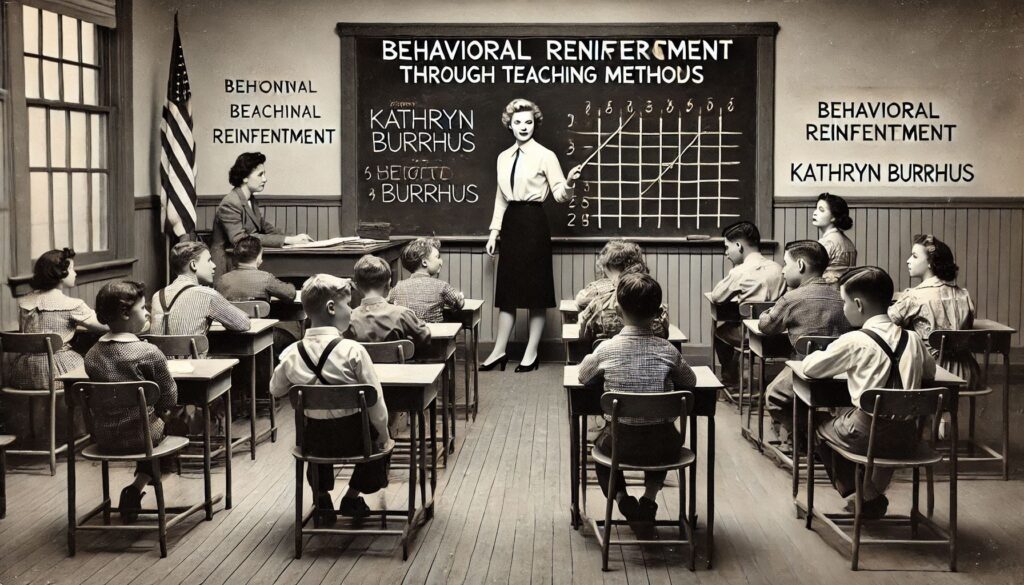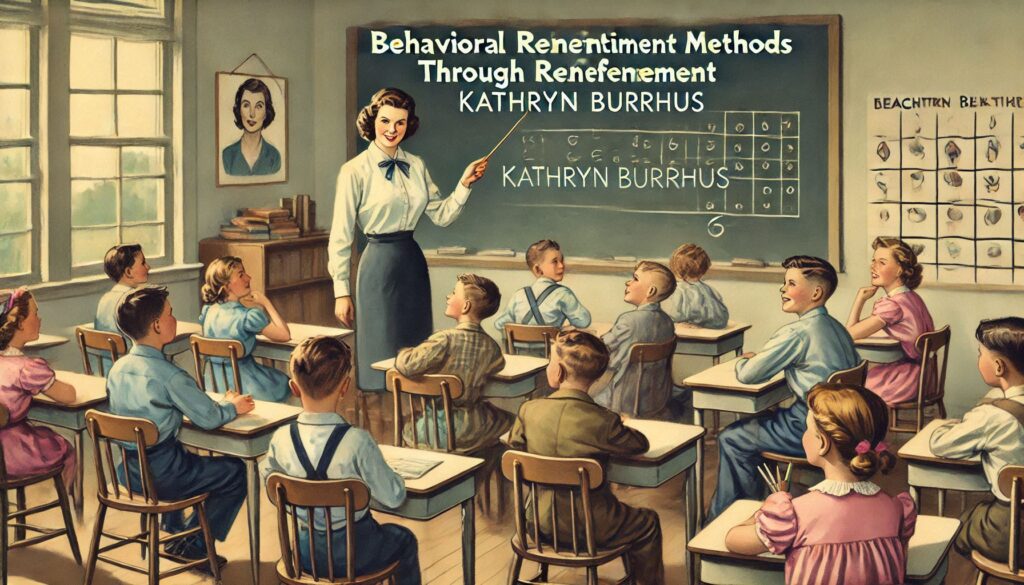Kathryn Burrhus, a name that may not immediately ring a bell for many, has left an indelible mark on various fields, particularly in the domain of psychology and education. In this article, we delve into the life and legacy of Kathryn Burrhus, an influential figure who played a crucial role in shaping the trajectory of modern psychology. Through this exploration, we will uncover the significant contributions she made, the challenges she faced, and the impact she continues to have on future generations of psychologists and educators.
Table of Contents
Who Was Kathryn Burrhus?
Kathryn Burrhus was born into an era where women’s roles in academia and professional circles were often limited by societal expectations. However, her remarkable achievements broke through these boundaries and positioned her as an inspiring figure in her field. While much of the mainstream recognition has been overshadowed by other figures in psychology, Burrhus’s contributions remain foundational.

Although Kathryn Burrhus is most widely known for her work in behavioral psychology, particularly in the application of learning theories, her influence extended far beyond academic walls. Her research, which often collaborated with her husband, B.F. Skinner, is a cornerstone in the study of behavior and the psychology of learning. Skinner, a renowned psychologist, is widely regarded for his work in operant conditioning, a theory of learning based on reinforcement and punishment. Kathryn Burrhus was an integral part of this intellectual collaboration, which helped shape modern behavioral psychology.
Early Life and Academic Journey
Kathryn Burrhus’s early life is marked by a deep curiosity and academic inclination that would set the stage for her future career. She graduated from the University of Michigan, where she began to cultivate an interest in psychology and the workings of the human mind. After completing her undergraduate degree, she continued her studies at Harvard University, where her professional journey truly began to take shape.

At Harvard, Kathryn Burrhus began collaborating with B.F. Skinner, an association that would prove to be both personally and professionally significant. Their professional relationship blossomed into a marriage that was grounded in a shared passion for exploring behaviorism and the ways in which people learn and adapt. Together, they pushed the boundaries of psychological research, focusing on understanding the intricacies of operant conditioning and its applications in real-world settings.
Contributions to Behavioral Psychology
Kathryn Burrhus’s work in behavioral psychology is often overshadowed by her husband’s fame, yet her influence cannot be overstated. While B.F. Skinner is often credited with the theoretical foundations of behaviorism, Kathryn played a pivotal role in conducting the experiments and refining the methodologies that contributed to the development of operant conditioning. Her research in this area focused primarily on the reinforcement of behavior and how certain environmental factors could shape learning processes.

One of her most significant contributions was her work with the teaching of pigeons, which was part of a broader series of experiments conducted by the Skinner team. These experiments explored how reinforcement and rewards could be used to teach animals complex tasks, and the results were groundbreaking. Kathryn Burrhus was instrumental in designing and executing many of these experiments, providing crucial insights into the ways that behavior could be molded through consistent reinforcement.
Moreover, Kathryn’s commitment to studying learning in more controlled, systematic environments helped to solidify the broader principles of behaviorism. Her research demonstrated that through carefully structured reinforcement schedules, behaviors could be learned and unlearned in both animals and humans, establishing a direct application of these principles in the field of education and therapy.
Also Read : Kathryn Burrhus.
Influence in Education
Beyond her contributions to psychology, Kathryn Burrhus also had a lasting impact on the field of education. As an educator herself, she believed strongly in the power of reinforcement-based teaching methods, an approach that draws heavily from the principles of operant conditioning. Her application of these methods in educational settings laid the foundation for later developments in modern teaching techniques that emphasize positive reinforcement and behavioral modification.

Kathryn was a proponent of the idea that learning should be viewed as a systematic process, with observable and measurable outcomes. She advocated for the use of behaviorist techniques to manage classroom behavior and enhance learning experiences. These methods not only proved effective in managing classrooms but also facilitated the design of educational programs that could cater to the specific needs of students based on their unique learning abilities.
In the decades that followed, many educators adopted Burrhus’s ideas and integrated them into their curricula, resulting in better educational outcomes for a diverse range of students. Her legacy in education remains visible today in the prevalence of reward-based learning systems and the use of behavior management techniques in classrooms around the world.
A Lasting Legacy in Psychology and Education
Though Kathryn Burrhus’s work is often viewed through the lens of her collaboration with B.F. Skinner, her individual contributions should not be overlooked. Her extensive research and practical applications in behavioral psychology have left a legacy that continues to influence psychologists, educators, and researchers to this day.

In modern psychology, the principles of operant conditioning, which Kathryn helped develop and refine, are still widely used in therapy and behavioral treatment. Techniques such as positive reinforcement are integral parts of behavior therapy and are commonly used to treat a variety of behavioral issues, ranging from anxiety and depression to autism spectrum disorder and other developmental conditions. Kathryn Burrhus’s work, through its precise and systematic approach to understanding learning and behavior, paved the way for many of these treatment methods.
Her influence extends beyond clinical psychology and education; it also reverberates in areas such as workplace behavior management, parenting, and even animal training. The emphasis on reinforcing positive behaviors and discouraging negative ones is now a fundamental principle in various domains, from schools and therapy centers to corporate environments and animal shelters.
The Influence of Kathryn Burrhus in Today’s World
In the modern world, where technology and neuroscience have become increasingly important in understanding the brain, it can be easy to forget the contributions of early psychologists like Kathryn Burrhus. However, her work laid the groundwork for much of the research and therapeutic techniques we use today. The cognitive-behavioral therapy (CBT) models employed by therapists around the globe owe a great deal to the early behaviorist frameworks that Burrhus and Skinner developed.

Moreover, the study of learning and motivation continues to evolve in response to the foundational research that Kathryn Burrhus contributed to. Today, her work remains relevant not only in the world of psychology but also in the burgeoning fields of artificial intelligence and machine learning, where reinforcement learning techniques mimic the same principles that Burrhus and Skinner explored decades ago.
Kathryn Burrhus’s ideas about reinforcement and behavior modification still serve as key concepts in how we approach personal development, education, and even behavioral health. In every classroom that utilizes behavior management techniques, in every therapy session that employs behaviorist principles, and in every animal trainer’s strategy, the legacy of Kathryn Burrhus can be felt.
Conclusion
Kathryn Burrhus may not be as widely celebrated as some of her contemporaries, but her contributions to behavioral psychology and education have shaped the way we understand human behavior, learning, and development. From her groundbreaking work with B.F. Skinner in operant conditioning to her lasting impact on education, Kathryn’s legacy endures, even if her name is not always front and center.
By examining her life and achievements, we gain a deeper appreciation for the role that behaviorist psychology plays in modern society. As we continue to build upon the research and principles that she helped establish, we owe a debt of gratitude to Kathryn Burrhus for her tireless work in advancing the understanding of human behavior and learning. Through her contributions, we continue to learn how to shape positive behaviors and foster environments that promote growth, development, and learning.
Her journey serves as a reminder that great contributions to science and education can come from unexpected places, and the quiet innovators like Kathryn Burrhus are just as deserving of recognition as their more famous counterparts.
Also Visit : 5StarsStocks.com Staples.
Also Visit : Kamryn Randolph Spry Winder GA.



